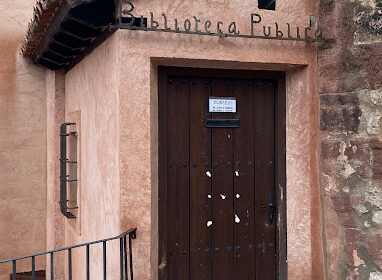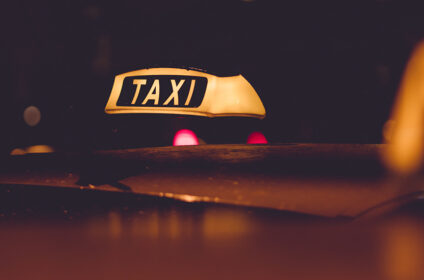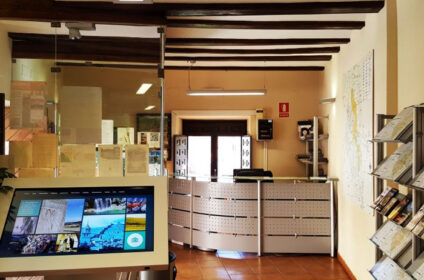Ayuntamiento de Albarracín
Descripción
El ayuntamiento es uno de los bienes arquitectónicos más relevantes de Albarracín.
Sus obras fueron iniciadas en el siglo XVI sobre el lugar en el que se reunía concejo de la ciudad desde la Edad Media.
La nueva construcción quedó adherida a la cara exterior de la muralla que atravesaba originalmente este punto, lo que hizo necesaria la concepción de una imponente infraestructura a base de grandes cajones y contrafuertes que salvase el desnivel del barranco y permitiese la sujeción del edificio.
La estructura del ayuntamiento en forma de “U” está integrada por tres alas o cuerpos rectangulares levantados en tres fases constructivas distintas.
La central, del siglo XVI, sirvió de modelo para ejecutar en los siglos XVIII y XX las dos alas laterales del consistorio, compartiendo todas ellas el sistema de soportales en sus plantas bajas que favorecería la celebración del mercado en cualquier época del año.
El cuerpo orientado al sur, que originalmente había servido de mazmorra, resultó fuertemente dañado durante la Guerra de la Independencia, siendo completamente demolido y reconstruido hacia la década de 1950.
En esta reforma se instaló la logia o mirador que abre visualmente la plaza al resto de la ciudad, generando una bella integración con el paisaje.
En la planta superior del edificio, sobre el imponente balcón de forja abierto a la plaza, encontramos el escudo de la ciudad compuesto por la Señal Real de Aragón, la imagen de Santa María (patrona de la ciudad) y la corona real.
Description
The town hall is one of the most relevant architectural assets of Albarracín.
Its works were begun in the 16th century on the place where the city council met since the Middle Ages.
The new construction was attached to the outer face of the wall that originally crossed this point, which made it necessary to design an imposing infrastructure based on large caissons and buttresses that would overcome the unevenness of the ravine and allow the building to be supported.
The “U”-shaped structure of the town hall is made up of three wings or rectangular bodies built in three different construction phases.
The central building, from the 16th century, served as a model for executing the two side wings of the town hall in the 18th and 20th centuries, all of them sharing the system of arcades on their ground floors that would favor the celebration of the market at any time of the year.
The south-facing body, which had originally served as a dungeon, was heavily damaged during the War of Independence, being completely demolished and rebuilt around the 1950s.
In this renovation, the loggia or viewpoint was installed that visually opens the square to the rest of the city, generating a beautiful integration with the landscape.
On the upper floor of the building, on the imposing wrought iron balcony open to the square, we find the city's coat of arms composed of the Royal Sign of Aragon, the image of Santa María (patroness of the city) and the royal crown.
- Dirección: Pl. Mayor, 1, 44126 Albarracín, Teruel, España
- Teléfono: +34978 700 400
- Correo: ayuntamiento@albarracin.es
- Sitio web: albarracin.es
Horario
- lunes 09:00 - 14:00
- martes 09:00 - 14:00
- miércoles 09:00 - 14:00
- jueves 09:00 - 14:00
- viernes 09:00 - 14:00
- sábado Día libre
- domingo Día libre
Working Hours
- lunes 09:00 - 14:00
- martes 09:00 - 14:00
- miércoles 09:00 - 14:00
- jueves 09:00 - 14:00
- viernes 09:00 - 14:00
- sábado Día libre
- domingo Día libre
Horario
- lunes 09:00 - 14:00
- martes 09:00 - 14:00
- miércoles 09:00 - 14:00
- jueves 09:00 - 14:00
- viernes 09:00 - 14:00
- sábado Día libre
- domingo Día libre
Working Hours
- lunes 09:00 - 14:00
- martes 09:00 - 14:00
- miércoles 09:00 - 14:00
- jueves 09:00 - 14:00
- viernes 09:00 - 14:00
- sábado Día libre
- domingo Día libre







